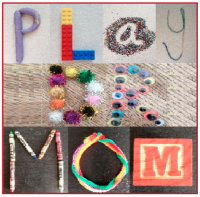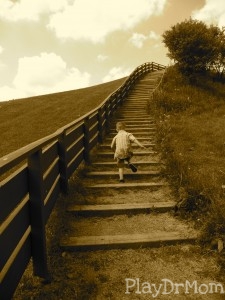20 Ways for Play Therapists to Increase the Experience of Effective Moments in Play Therapy
The following is a culmination of the results from my dissertation research, “The Therapist’s Experience of Effective Moments in Play Therapy.” I believe it is helpful for all play therapists, beginners or veterans, to review often to remember the great influence we can have in our role.
- Believe in your potential to experience effective moments.
- Remain self aware – have a way to check internally what your needs are and if they are being sufficiently met.
- Take care of your body – exercise, sleep, and eat right. Remember to take deep breaths to relieve stress and tension.
- Create your own way to focus in play therapy sessions. For example, create a personal ritual before you see each client.
- Always get a thorough history of the child and family.
- Develop an individual way of measuring effectiveness with the clients with whom you work. Using assessment tools at the beginning and throughout treatment may help gain awareness of areas in which play therapy is helping the child.
- Stay with the child by verbally tracking his or her play and emotions. This allows the child to know that the therapist is with him or her. It also helps keep you in the moment with the child.
- Notice times “Wow!” or similar phrases are said. Also attend to when you experience time slowing or stopping during play therapy and be aware of what happened in the moment.
- Create a method of recording effective moments. Include a description of the moment and factors you think may have played a key role in the moment. Also, utilize a note-taking system that tracks themes and toys used during sessions noting shifts within the play.
- As part of play therapy, create a journal for the child to record new awarenesses made in therapy.
- Meet with parents or caregivers regularly in order to increase understanding of play themes and shifts. Ongoing contact with the child’s school can also be helpful.
- When appropriate, share effective moments with others, such as the child, parents, lawyers, peers, and students. This helps others understand the effectiveness of play therapy.
- Remember the importance of debriefing. Make sure you always have outlets to process cases, i.e. supervision, networking groups, peer consultation. Have a system to review cases and moments in order to increase understanding of them – supervision, peer consultation, self review of audio or video tapes.
- Stress consistency. Regular structure and attendance is needed in order to feel effective. Remind (and model) to parents the importance of regularity. Also, take good care of the play room and supplies to maintain the reliability of the play space.
- If you are not connecting with the child, or are not adequately trained to work with a certain population or diagnosis, refer to a colleague.
- Remember why you became a play therapist.
- Think about your best or favorite case.
- Keep favorite play therapy literature on hand to review regularly. When in doubt of the play therapy process, read a book, conference handout, or listen to an audio recording as a reminder that the process works.
- Join an organization or group to help support you and learn new ideas about play therapy. Continue your play therapy education. Attend workshops, conferences, and networking meetings and keep up with the current play therapy literature.
- Do not forget to ALWAYS have PLAY as part of your own life!
The following two tabs change content below.
Laura Hutchison
Laura Hutchison (aka PlayDrMom) is a chubby kid turned competitive figure skater tween turned high school pom pon girl turned MSU Spartan turned grad student turned Mrs. HutcH turned Dr. turned Mom. She adores living in the Mitten, is addicted to Diet Coke, and firmly believes that ice cream is a main food group.
Latest posts by Laura Hutchison (see all)
- Hacked By GeNErAL - August 21, 2015
- ABCs of Easy Crafts for Kids - August 14, 2015
- What is Learned through PLAY - August 12, 2015
- ABCs of Playground Parkbench - August 7, 2015
- ABCs of Encourage Play - July 31, 2015
Comments


















I am a child therapist, teacher and have many supervision. I do agree with many of your points above about 20 ways… Have you published your research? could you share at least your conclusions with our group here in the Philippines (I also work in Brazil)?
My research is not published in a journal at this time. I do have a presentation on my findings, if you are interested feel free to contact me. My email is playdr@gmail.com